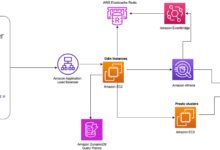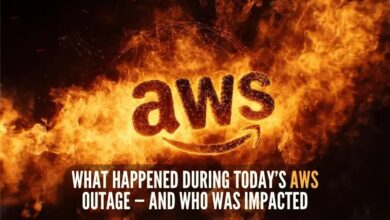AWS Certifications: 7 Ultimate Power-Packed Paths to Skyrocket Your Cloud Career
Thinking about AWS certifications? You’re on the right track. These credentials aren’t just badges—they’re career accelerators in today’s cloud-driven world.
Why AWS Certifications Are a Game-Changer in 2024

AWS certifications have evolved from being a nice-to-have to a must-have for IT professionals aiming to stand out. With Amazon Web Services dominating over 30% of the global cloud market, earning an AWS certification signals deep expertise and hands-on experience with the most widely used cloud platform.
Industry Recognition and Credibility
Employers across the globe recognize AWS certifications as a gold standard. According to a 2023 Global Knowledge IT Skills and Salary Report, AWS-certified professionals earn up to 25% more than their non-certified peers. This isn’t just about validation—it’s about tangible career growth.
- AWS certifications are vendor-specific, meaning they reflect real-world skills on the world’s leading cloud platform.
- They’re trusted by Fortune 500 companies, startups, and government agencies alike.
- LinkedIn data shows that job postings mentioning AWS certifications have increased by 40% over the past two years.
“Certifications validate skills, but AWS certifications validate cloud mastery.” — Sarah Johnson, Cloud Architect at Accenture
Boosted Career Opportunities
Whether you’re an aspiring cloud engineer, a solutions architect, or a DevOps specialist, AWS certifications open doors. From entry-level roles like Cloud Support Associate to senior positions like Principal Solutions Architect, these credentials act as a passport to high-demand jobs.
Many recruiters use certification filters in their applicant tracking systems (ATS). Having an AWS certification increases your chances of being shortlisted—even if your resume lacks extensive experience.
AWS Certifications Roadmap: A Complete Guide
Navigating the AWS certification path can feel overwhelming. AWS offers a structured hierarchy designed to guide professionals from foundational knowledge to expert-level mastery. Understanding this roadmap is crucial for planning your journey effectively.
The Six Levels of AWS Certifications
AWS organizes its certifications into six distinct levels, each targeting different experience levels and technical domains:
- AWS Certified Cloud Practitioner – Ideal for beginners and non-technical roles.
- AWS Certified Solutions Architect – Associate – For designing distributed systems on AWS.
- AWS Certified Developer – Associate – Focused on developing and maintaining AWS applications.
- AWS Certified SysOps Administrator – Associate – For system operations and deployment on AWS.
- AWS Certified DevOps Engineer – Professional – Advanced automation and CI/CD pipeline expertise.
- AWS Certified Solutions Architect – Professional – Top-tier design and deployment mastery.
- AWS Certified Specialty Certifications – Domain-specific credentials like Security, Machine Learning, and Advanced Networking.
Each level builds on the previous one, ensuring a progressive skill development path.
Choosing the Right Certification Path
Your ideal AWS certification depends on your background, career goals, and technical interests. Here’s a quick guide:
- Beginners: Start with the AWS Certified Cloud Practitioner to build foundational knowledge.
- Developers: Aim for the AWS Certified Developer – Associate to validate coding and deployment skills.
- System Administrators: The AWS Certified SysOps Administrator – Associate is your best bet.
- Architects: Target the Solutions Architect – Associate, then progress to the Professional level.
- Specialists: After mastering Associate or Professional levels, pursue a specialty like AWS Certified Security – Specialty or AWS Certified Machine Learning – Specialty.
AWS Certified Cloud Practitioner: Your First Step
The AWS Certified Cloud Practitioner is the gateway to the AWS certification ecosystem. It’s designed for individuals who want to understand cloud concepts, AWS services, and the basics of security and pricing.
Who Should Take This Certification?
This certification isn’t just for technical staff. It’s perfect for:
- Sales and marketing professionals in tech companies.
- Project managers overseeing cloud projects.
- Students exploring cloud careers.
- IT professionals from non-cloud backgrounds.
It requires no prior technical experience, making it the most accessible of all aws certifications.
Exam Structure and Key Topics
The CLF-C02 exam (as of 2024) consists of 65 multiple-choice and multiple-response questions, with a 90-minute time limit. The domains covered include:
- Cloud Concepts (26%): Understand the benefits of cloud computing, the shared responsibility model, and different cloud deployment models.
- Security and Compliance (25%): Learn about AWS Identity and Access Management (IAM), encryption, and compliance standards like GDPR and HIPAA.
- Technology (33%): Gain familiarity with core AWS services like EC2, S3, RDS, and Lambda.
- Pricing and Support (16%): Master the AWS Pricing Calculator, Total Cost of Ownership (TCO) analysis, and support plans.
Preparation resources include the AWS Training and Certification portal, free digital training, and practice exams.
AWS Associate-Level Certifications: Building Core Expertise
After the Cloud Practitioner, the next step is one of the three Associate-level aws certifications. These are where technical depth begins and career specialization starts to take shape.
AWS Certified Solutions Architect – Associate (SAA-C03)
This is one of the most popular aws certifications and a cornerstone for cloud architects. It validates your ability to design scalable, fault-tolerant, and cost-efficient systems on AWS.
Key topics include:
- Designing resilient architectures using services like Auto Scaling, Elastic Load Balancing, and Multi-AZ deployments.
- Implementing secure access using IAM policies, roles, and VPCs.
- Optimizing performance and cost with S3 lifecycle policies, EC2 instance types, and reserved instances.
The exam is 130 minutes long with 65 questions. Hands-on experience is highly recommended—many candidates spend 6–12 months working with AWS before attempting this exam.
AWS Certified Developer – Associate (DVA-C02)
Tailored for software developers, this certification focuses on developing, deploying, and debugging cloud applications using AWS services.
Key areas include:
- Writing code using AWS SDKs (Python, Java, Node.js).
- Deploying applications with AWS Elastic Beanstalk and AWS CodeDeploy.
- Using AWS Lambda for serverless computing and API Gateway for RESTful APIs.
- Monitoring applications with Amazon CloudWatch and X-Ray.
This certification is ideal for full-stack developers transitioning to cloud-native development.
AWS Certified SysOps Administrator – Associate (SOA-C02)
This certification is for system administrators responsible for deploying, managing, and operating workloads on AWS.
Key skills tested:
- Automating operational tasks with AWS CLI and CloudFormation.
- Monitoring and logging with CloudWatch and AWS Config.
- Implementing backup, recovery, and disaster recovery strategies.
- Managing IAM policies and securing EC2 instances.
It’s a hands-on exam that emphasizes real-world operational scenarios.
AWS Professional-Level Certifications: Mastering the Cloud
The Professional-level aws certifications are designed for experienced practitioners who have deep technical expertise and have worked on complex AWS environments for at least two years.
AWS Certified Solutions Architect – Professional (SAP-C02)
This is one of the most challenging aws certifications. It tests your ability to design complex, enterprise-grade solutions on AWS.
Exam domains include:
- Advanced architecture patterns like microservices, serverless, and hybrid cloud.
- Cost optimization at scale using Reserved Instances, Savings Plans, and Spot Fleets.
- Security at the enterprise level, including encryption, logging, and compliance automation.
- Migrating large-scale on-premises workloads to AWS using AWS Migration Hub and Database Migration Service.
Candidates often report spending 3–6 months preparing, using a mix of hands-on labs, whitepapers, and practice tests from platforms like Whizlabs and Tutorials Dojo.
AWS Certified DevOps Engineer – Professional (DOP-C02)
This certification validates your ability to automate and secure the software delivery process on AWS.
Key competencies include:
- Designing and implementing CI/CD pipelines using AWS CodePipeline, CodeBuild, and CodeDeploy.
- Infrastructure as Code (IaC) with AWS CloudFormation and Terraform.
- Monitoring and logging at scale using CloudWatch, AWS X-Ray, and third-party tools.
- Security automation with AWS Config, Inspector, and GuardDuty.
This is ideal for DevOps engineers, SREs, and cloud automation specialists.
AWS Specialty Certifications: Deep Dive into Niche Domains
After achieving Associate or Professional status, many professionals pursue AWS Specialty certifications to demonstrate expertise in high-demand areas. These aws certifications are among the most respected in the industry.
AWS Certified Security – Specialty (SCS-C02)
This certification is for security professionals responsible for securing AWS environments.
Key topics include:
- Data encryption using AWS KMS, CloudHSM, and S3 server-side encryption.
- Identity and access management at scale with IAM, SSO, and Cognito.
- Threat detection with Amazon GuardDuty, Inspector, and Macie.
- Compliance frameworks and audit logging with AWS Config and CloudTrail.
It’s recommended to have at least five years of IT security experience and two years of AWS experience before attempting this exam.
AWS Certified Machine Learning – Specialty (MLS-C01)
This is one of the most advanced aws certifications, targeting data scientists and ML engineers.
It covers:
- Data engineering with Amazon SageMaker, Glue, and Kinesis.
- Building, training, and deploying ML models using SageMaker.
- Choosing the right algorithm for regression, classification, and clustering.
- Model evaluation, hyperparameter tuning, and inference optimization.
Candidates should be proficient in Python and have a solid understanding of machine learning concepts.
AWS Certified Advanced Networking – Specialty (ANS-C01)
This certification is for network engineers who design and implement complex AWS networking architectures.
Key areas include:
- Hybrid cloud connectivity using AWS Direct Connect and Site-to-Site VPN.
- Advanced VPC design with VPC peering, Transit Gateway, and route tables.
- DNS management with Route 53, including latency-based and geolocation routing.
- Network security with Network ACLs, Security Groups, and AWS WAF.
It’s one of the most technically demanding aws certifications, requiring deep networking knowledge.
How to Prepare for AWS Certifications: Proven Strategies
Success in aws certifications doesn’t come from memorization—it comes from understanding and application. Here are proven strategies used by top performers.
Hands-On Practice with AWS Free Tier
The AWS Free Tier gives you 12 months of free access to core services like EC2, S3, and Lambda. Use this to build real projects:
- Create a static website hosted on S3 with CloudFront.
- Deploy a serverless API using API Gateway and Lambda.
- Set up a VPC with public and private subnets.
- Automate deployments using CloudFormation or Terraform.
Nothing beats hands-on experience when preparing for aws certifications.
Use Official AWS Training and Practice Exams
AWS offers free digital training through AWS Skill Builder. Paid learning paths include instructor-led courses and labs. Practice exams from AWS and third-party providers help you get used to the question format and time pressure.
Recommended resources:
- AWS Skill Builder – Official training platform.
- Udemy courses by Stephane Maarek and Neal Davis.
- TutorialsPoint AWS Guides for quick reference.
Join Study Groups and Communities
Engaging with communities like the r/AWSCertifications subreddit or AWS forums can provide motivation, tips, and moral support. Many candidates form study groups to share notes and take mock exams together.
Benefits of AWS Certifications Beyond the Resume
While salary and job opportunities are major draws, aws certifications offer deeper, long-term benefits.
Confidence in Technical Decision-Making
Studying for aws certifications forces you to understand not just how services work, but why they exist. This deepens your architectural thinking and helps you make better design decisions in real projects.
Access to AWS Partner Programs
For consultants and solution providers, holding multiple aws certifications can help qualify for AWS Partner Network (APN) tiers, which offer marketing support, technical resources, and revenue incentives.
Lifelong Learning Mindset
The cloud evolves rapidly. Preparing for aws certifications instills a habit of continuous learning, keeping you ahead of technological shifts.
Common Mistakes to Avoid When Pursuing AWS Certifications
Even motivated candidates stumble. Here are common pitfalls and how to avoid them.
Skipping Hands-On Practice
Reading documentation isn’t enough. Many fail because they don’t build real systems. Always pair study with lab work.
Underestimating Exam Difficulty
Especially for Associate and Professional exams, the questions are scenario-based and require critical thinking. Don’t assume you’ll pass with just a week of study.
Ignoring the AWS Exam Guide
AWS publishes detailed exam guides for each certification. These outline the domains, weightings, and sample questions. Ignoring them is like studying for a test without knowing the syllabus.
Are AWS certifications worth it in 2024?
Absolutely. With cloud adoption accelerating, AWS certifications remain one of the most valuable credentials in tech. They boost employability, salary, and technical confidence.
How long does it take to get AWS certified?
It depends on your background. Beginners might take 4–8 weeks for the Cloud Practitioner. Associate-level exams often require 3–6 months of study and hands-on experience.
Do AWS certifications expire?
Yes. All aws certifications are valid for three years. You can recertify by passing the same or a higher-level exam before expiration.
Which AWS certification is best for beginners?
The AWS Certified Cloud Practitioner is the best starting point. It builds foundational knowledge without requiring technical experience.
Can I get AWS certified for free?
While the exams aren’t free (ranging from $100 to $300), AWS offers free training through Skill Builder. Some programs like AWS re/Start provide free certification vouchers for eligible participants.
Mastering aws certifications is more than just passing exams—it’s about building real cloud expertise that drives innovation and career growth. Whether you’re starting from scratch or aiming for expert status, each certification step brings you closer to becoming a true cloud professional. The journey is challenging, but the rewards—higher salaries, global recognition, and technical mastery—are well worth the effort. Start today, stay consistent, and let your certifications open the doors to your next big opportunity.
Further Reading:









